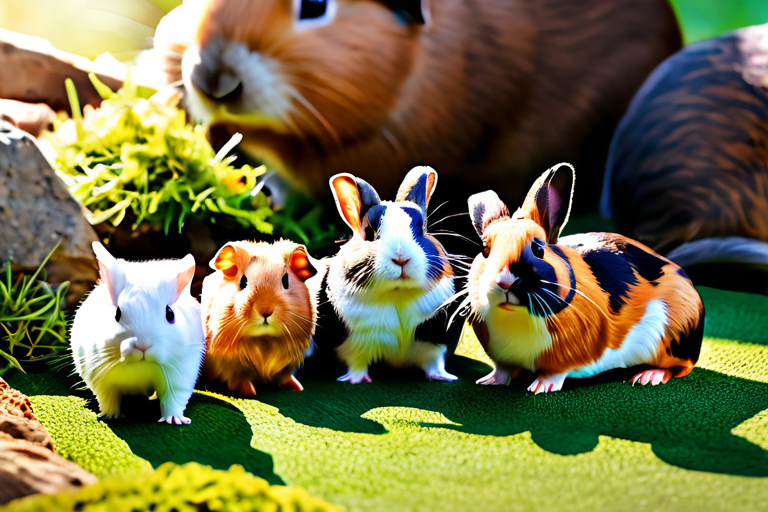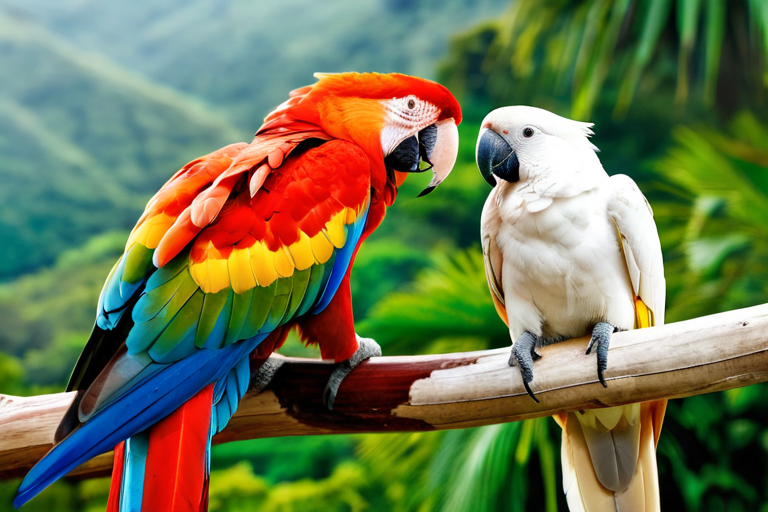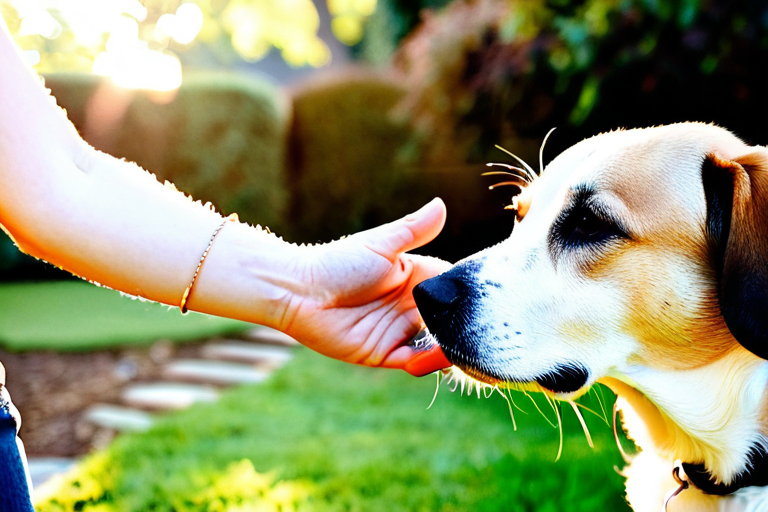The Lifespan of Companionship: Understanding How Long Pets Stay With Us
Different pets offer varying durations of companionship throughout our lives
When we welcome a pet into our lives, we're not just adopting an animal – we're beginning a relationship that will span years, sometimes decades. But how long can we realistically expect our furry, feathered, or scaled friends to stay with us?
The Science of Pet Longevity
According to research from the American Veterinary Medical Association, pet lifespans have been steadily increasing over the past few decades. Improved veterinary care, better nutrition, and increased awareness of preventive health measures have all contributed to this positive trend.
Dr. Sarah Johnson, a veterinary gerontologist at Cornell University College of Veterinary Medicine, explains: "We're seeing pets live longer, healthier lives than ever before. A dog that might have lived 10-12 years in the 1980s can now easily reach 14-16 years with proper care."
Canine Companions: More Than Just a Decade
Key Fact: Small dog breeds typically outlive their larger counterparts by several years. While a Great Dane might average 7-10 years, a Chihuahua can often reach 15-20 years.
The American Kennel Club maintains extensive records on breed longevity, revealing fascinating patterns across different sizes and types of dogs. Smaller breeds like Toy Poodles and Dachshunds frequently reach 15+ years, while giant breeds like Saint Bernards and Irish Wolfhounds typically have shorter lifespans of 6-8 years.
Understanding the aging process helps us provide better care throughout our dogs' lives
Recent studies published in the PLOS ONE journal have identified specific genetic factors that influence canine aging. Researchers found that smaller dogs tend to have slower metabolic rates and delayed onset of age-related diseases compared to larger breeds.
Feline Friends: The Long-Distance Runners
Cats often surprise their owners with their longevity. The Cornell Feline Health Center reports that indoor cats regularly live into their late teens, with many reaching 20 years or more. The current record for the oldest cat stands at an incredible 38 years.
"Cats are remarkable survivors," notes Dr. Michael Richards, a feline specialist with over 30 years of experience. "Their evolutionary history as solitary hunters has given them robust physiological systems that serve them well in old age."
Factors Extending Cat Lifespan
- Indoor-only living
- Regular veterinary care
- Quality nutrition
- Dental health maintenance
- Environmental enrichment
Common Age-Related Issues
- Kidney disease
- Hyperthyroidism
- Dental problems
- Arthritis
- Cognitive decline
Exotic and Small Mammals: Short but Sweet
For those who prefer smaller companions, the timeline looks quite different. According to the USDA's Animal Care Program, small mammals have much shorter lifespans but can still provide meaningful companionship.

Small pets offer unique companionship experiences with different duration expectations
| Pet Type | Average Lifespan | Maximum Recorded |
|---|---|---|
| Hamsters | 2-3 years | 4.5 years |
| Guinea Pigs | 4-8 years | 14 years |
| Rabbits | 8-12 years | 18 years |
| Rats | 2-3 years | 7 years |
Avian Companions: The Century Club
Bird owners often experience the longest pet relationships of all. Large parrot species like Macaws and Cockatoos can outlive their human companions, with lifespans regularly exceeding 60 years and some individuals reaching 80-100 years.
The World Parrot Trust emphasizes that these long lifespans come with significant responsibility. "People don't always realize they're making a lifetime commitment when they adopt a large parrot," says conservation director Dr. James Dean. "These birds often need provisions in their owners' wills."

Large parrot species can form multi-generational bonds with human families
Reptilian Relationships: Slow and Steady
Reptile enthusiasts enjoy some of the most durable pet relationships. Tortoises, in particular, are legendary for their longevity. The current record holder, a Seychelles giant tortoise named Jonathan, is estimated to be 190 years old and still going strong.
According to herpetologist Dr. Linda Thompson from the Smithsonian Institution, "Reptiles operate on a completely different biological timescale. Their slow metabolism and efficient cellular repair systems allow them to achieve lifespans that seem almost mythical to mammals."
Notable Reptile Lifespans
- Leopard Geckos: 15-20 years
- Bearded Dragons: 8-12 years
- Ball Pythons: 20-30 years
- Red-eared Sliders: 20-40 years
- Galapagos Tortoises: 100+ years
The Human-Animal Bond Through Time
What makes these varying timelines meaningful isn't just the number of years, but the quality of the relationship built during that time. Research from the Human Animal Bond Research Institute shows that the psychological benefits of pet ownership remain significant regardless of the pet's lifespan.
"The depth of connection isn't measured in years alone," explains psychologist Dr. Amanda Chen. "A two-year relationship with a rat can be as meaningful as a fifteen-year relationship with a dog. It's about the daily interactions, the mutual understanding, and the emotional support exchanged."

The human-animal bond transcends mere duration, creating meaningful connections at every life stage
Extending the Journey Together
While genetics play a significant role in determining lifespan, several factors under owner control can extend a pet's healthy years:
Nutrition
Species-appropriate diets with proper portion control can add years to a pet's life. Obesity remains one of the most significant preventable causes of premature aging.
Preventive Care
Regular veterinary check-ups, vaccinations, and dental care catch problems early and maintain overall health throughout the lifespan.
Mental Stimulation
Enriched environments, training, and social interaction keep pets mentally sharp and engaged, contributing to overall wellbeing.
Exercise
Appropriate physical activity maintains muscle mass, joint health, and cardiovascular function across all species.
The Emotional Mathematics of Pet Ownership
When considering adding a pet to your family, it's worth contemplating not just the potential duration of the relationship, but how that timeline fits with your own life stages. A college student might do well with a hamster's 2-3 year commitment, while a young family might prefer a dog's 10-15 year timeline that can grow with their children.
Retirees often find perfect companions in cats or small dogs that match their lifestyle and can provide companionship through their golden years. Meanwhile, families with young children might appreciate the educational opportunity of shorter-lived pets that teach about life cycles in a manageable timeframe.
Lifespan Considerations by Life Stage
- Students/Young Adults: Consider shorter-lived pets that fit transitional lifestyles
- Young Families: Medium-duration pets that can grow with children
- Empty Nesters: Longer-lived companions for established lifestyles
- Seniors: Consider pet lifespans in relation to your own planning
The Legacy of Companionship
Ultimately, the measure of a pet's impact isn't captured in years alone. Each animal leaves a unique imprint on our lives, regardless of whether they shared our journey for two years or twenty. The memories, lessons, and love they provide become part of our personal histories, shaping who we are and how we relate to the world.
As veterinary science continues to advance, we can expect even longer, healthier lives for our animal companions. But the true value lies not in maximizing years, but in maximizing the quality of connection during whatever time we're given together.
Every pet, regardless of lifespan, teaches us about love, loss, and the preciousness of time. Choose your companion wisely, care for them thoroughly, and cherish every moment of the journey you share.